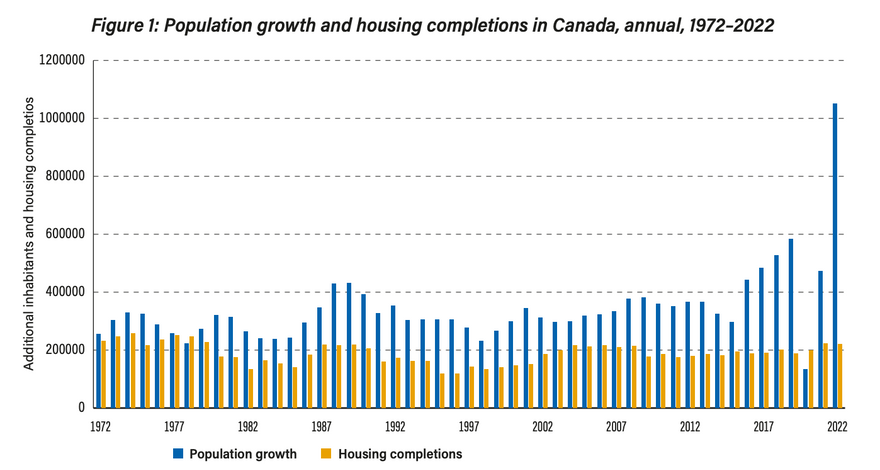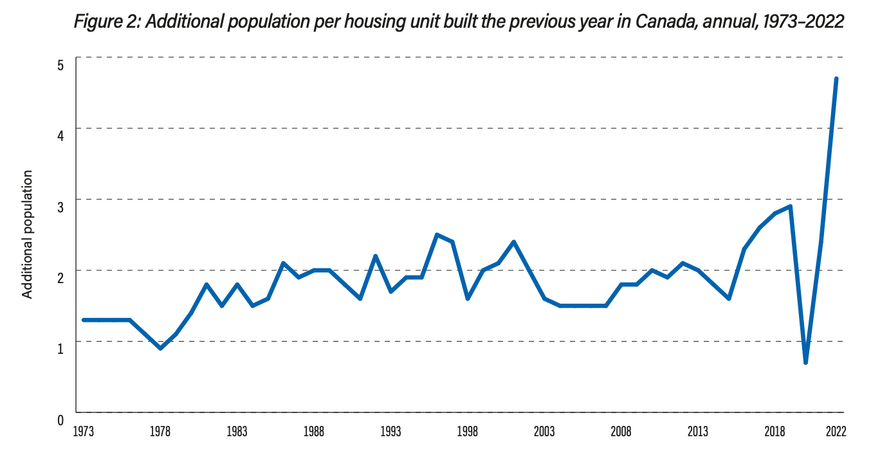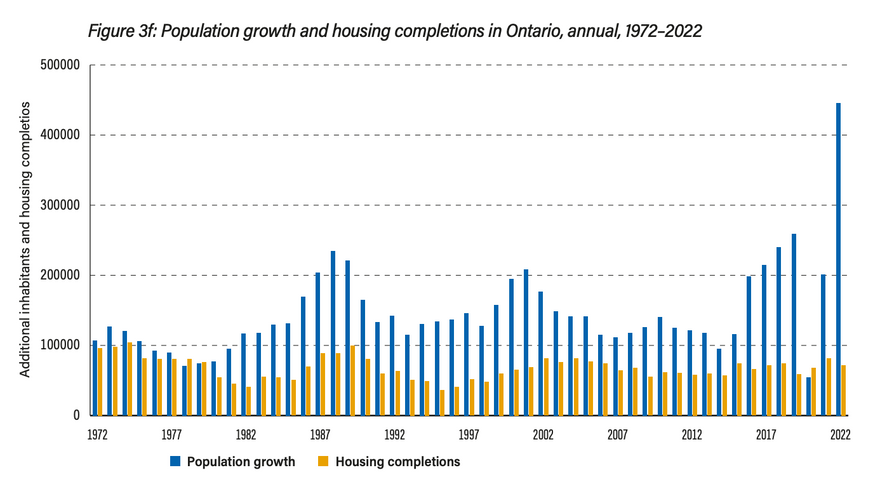Population Growth In Canada Is Outpacing Housing Completions By 40%

The gap between been housing completions and population growth has widened to a 50-year high in Canada, says public policy think-tank.
It’s no secret that housing completions trail well behind population growth in Canada, but there’s still some shock value when you dig into the actual numbers.
According to a research bulletin from the Fraser Institute, Canada’s population increased by an annual average of 553,568 persons between 2018 to 2022. During that same time period, just 205,762 new homes were built on average per year. The gap between those two figures has hit a 50-year high.
Statistics Canada
“Over the last five years housing completions equalled less than 40% of population growth — a stark difference from the early 1970s when population growth almost equalled housing completions,” notes the public policy think tank in a recent press release.
“Specifically, from 1972 to 1976, the population grew (on average) by 299,843 people per year compared to an average of 237,853 new homes built.”
Statistics Canada
Josef Filipowicz, Senior Fellow at the Fraser Institute, explains in the bulletin that homebuilding activity and population growth began “diverging” in the 1980s. From that point on, housing completions hovered below or slightly above 200,000.
“This divergence subsides slightly in the mid-2000s, when the ratio of additional people per new housing unit fell back to 1.5 for the first time since the mid-1980s, but grew markedly from the mid-2010s onward when population growth soared without commensurate increases in housing completions,” Filipowicz goes on to say.
“Given the relative stagnation of housing completions over the five decades examined, the marked increase in the ratio of additional population per housing unit completed in recent years is driven almost exclusively by population growth.”
Statistics Canada
On a provincial basis, the disparities are similar to the national trend. In Ontario, for instance, the population grew by an annual average of 239,915 people between 2018 to 2022, while the annual average for housing completions over that same time period came in at just 70,828. Meanwhile, the population of British Columbia surged by an average of 86,339 over that same five-year period, compared to just 39,766 housing starts on average per year. In Alberta, those same annual averages were 75,665 (for population growth) and 26,782 (for housing completions).
Filipowicz emphasizes that the “large and widening gap” between demand and supply is “at the heart” of Canada’s housing affordability challenges.
“These findings offer a sobering reminder of the magnitude of Canada’s housing shortage,” he says. “They also offer a gauge of the relative effectiveness of current efforts undertaken by governments — at all levels, and in all provinces — to improve the supply of housing in the face of current population growth.”
Storeys (Zakiya Kassam, October 19, 2023)










